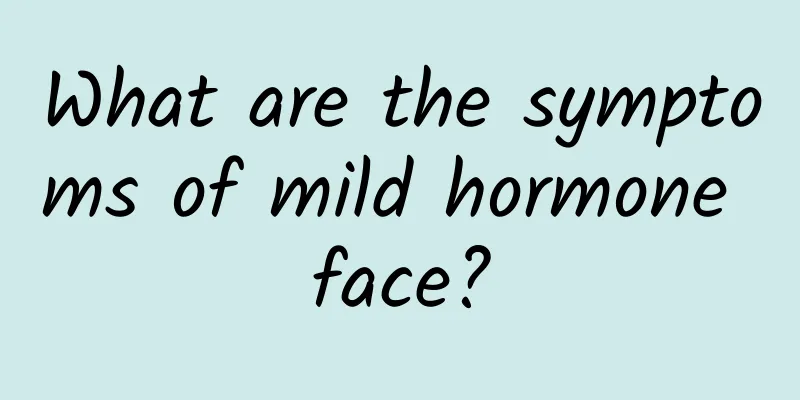Adverse reactions to local anesthetics

|
Local anesthesia is a relatively common method of anesthesia. It means that while the patient is conscious, anesthetics are injected into a part of the body, which will temporarily block the nerve conduction in a part of the body. Generally, it will not cause damage to any tissue of the patient. Of course, for some patients, some adverse reactions may occur, such as tissue toxicity, which is caused by excessive drug concentration or poor absorption. Adverse reactions to local anesthetics 1. Tissue toxicity Factors involved include traumatic injection methods, high drug concentrations, malabsorption, and other mechanical factors that cause macroscopic or microscopic tissue damage. In fact, commonly used anesthetics do not have tissue toxicity. If high-osmotic concentration local anesthetics are injected into the skin or subcutaneously, temporary edema may be caused. Although the addition of epinephrine can improve the degree of edema, it will further increase tissue toxicity. Injection of less than 1% procaine, lidocaine, or mepivacaine solution will not affect wound healing. 2. Neurotoxicity Direct injection of anesthetics into nerves or nerve bundles can cause functional or structural changes, which are not simply caused by the drug itself, but are related to physical factors (pressure). 3. Hypersensitivity reaction Tolerance of local anesthetics varies greatly among individual patients. When a small dose of local anesthetic is used, or the dose is lower than the usual dose, and the patient develops early symptoms of toxicity, it should be considered a hypersensitivity reaction. If a reaction occurs, medication should be stopped and treatment should be initiated. 4. Allergic reaction Allergic reactions are caused by the attachment of cytotropic immunoglobulins to the surface of mast cells and alkaliphilic granulocytes. When the antigen and reagin antibody meet again, histamine and 5-hydroxytryptamine are released from the mast cell granules. These circulating biogenic amines can stimulate a rapid and severe systemic defensive response, resulting in airway edema, bronchospasm, dyspnea, hypotension, and angioedema due to increased capillary permeability, as well as urticaria on the skin accompanied by itching. Severe reactions can endanger the patient's life. The incidence of allergic reactions accounts for 2% of adverse reactions to local anesthetics. Ester local anesthetics are far more likely to cause allergic reactions than amides. It is generally believed that ester local anesthetics form haptens with immunoglobulin E, and the preservatives of local anesthetics can also form haptens, which is another potential factor causing allergic reactions. 5. Central nervous system toxicity The central nervous system toxicity of local anesthetics manifests as an initial excitatory phase and a terminal inhibitory phase. Initially, the patient experiences restlessness, anxiety, paresthesia, tinnitus, and numbness around the mouth, followed by facial spasms and systemic convulsions, and ultimately develops into severe central nervous system depression, coma, and respiratory and cardiac arrest. 6. Cardiotoxicity The early manifestations of the cardiovascular system are tachycardia and hypertension indirectly caused by central nervous system excitement, while in the late stage, the direct effects of local anesthetics cause arrhythmia, hypotension and inhibition of myocardial contractile function. |
<<: Why do I feel dizzy and nauseous after taking anesthesia?
>>: The harm of surgical anesthesia to the human body
Recommend
What causes toothache during menstruation?
Healthy women will have menstruation every month,...
Dengue fever test
Dengue fever is a relatively serious viral infect...
How to clear blood vessel blockage
Blood vessel blockage is harmful to human health....
What to do when you have urgent and painful urination? Chinese medicine teaches you dietary treatment
With the deterioration of people's living env...
What Chinese medicine should I take for wind caused by blood deficiency?
Blood deficiency is a relatively common health pr...
Color of manganese sulfate solution
The manganese sulfate solution is flesh-colored, ...
Will eating egg yolk fruit make you fat?
Nowadays, many women are particularly concerned a...
What to do if your girlfriend has rotten teeth
For girls, if they have a mouth full of rotten te...
What are some tips for breast enhancement during menstruation?
Female friends always have a few days every month...
What are the 6 obvious marks left on a woman’s body after she has an affair?
If the wealth lines are deep and clear, these peo...
What is the difference between barium meal and gastroscopy?
Nowadays, due to irregular diet, poor eating habi...
Can I have an abortion if I have gynecological disease?
Pregnant women with gynecological diseases cannot...
What are the effects of traditional Chinese medicine epimedium
Epimedium is a commonly used Chinese herbal medic...
What is oily skin? Causes of Oily Skin
Oily skin actually refers to a property of the sk...
Check out the best treatments for paronychia
Nowadays, there are more and more patients with p...









